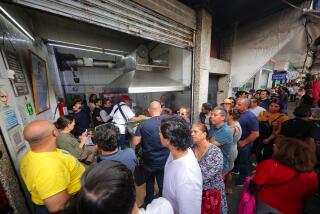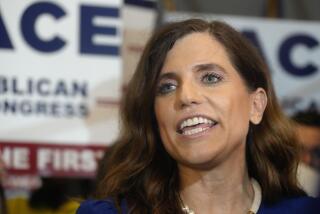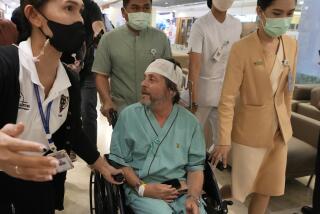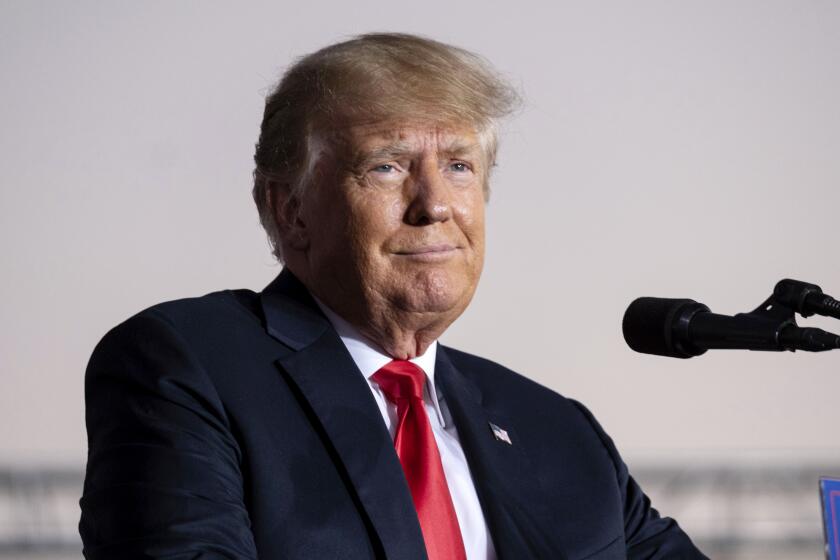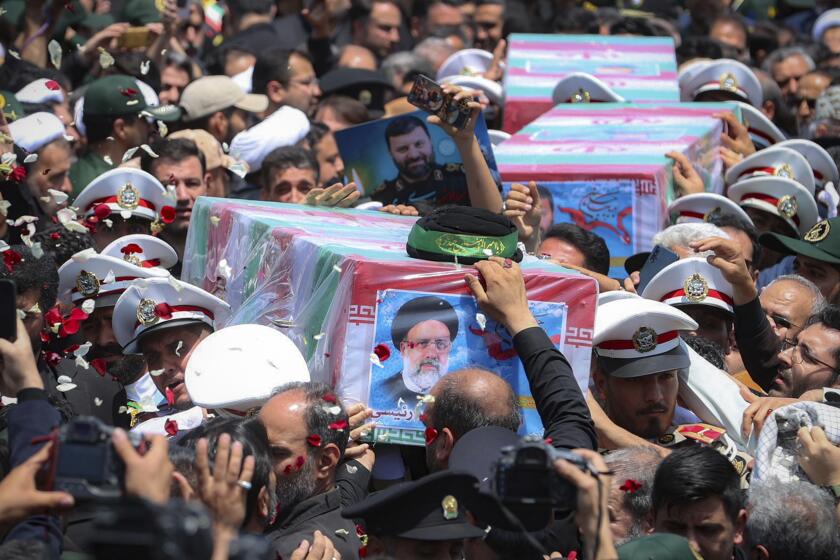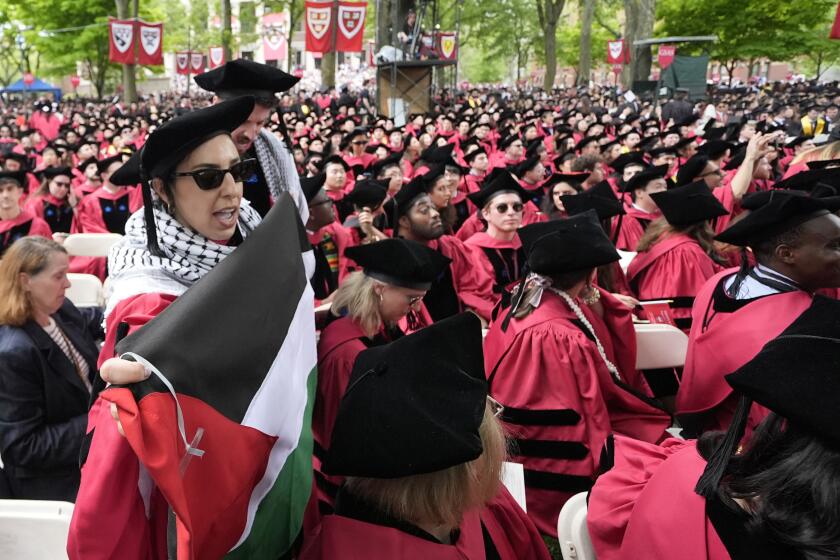For Leaders of Venezuela and Colombia, Common Ground
After a near breach in relations earlier this year, mutual necessity and shared traditions have drawn Venezuelan President Hugo Chavez and Colombian leader Alvaro Uribe back together.
On Saturday, the two leaders hugged, called each other “brother” and, as a youth orchestra from Venezuela played classical tunes, chatted amiably in the shade of an enormous ceiba tree near the spot where Latin American independence leader Simon Bolivar died in 1830.
Uribe invited Chavez here to mark the 175th anniversary of the death of Bolivar, whom both countries claim as a founding father. After two hours of talks, they announced a series of economic initiatives. But the emphasis was clearly on repairing ties that had frayed severely.
The low point came in January, when agents acting on behalf of Uribe’s government spirited Colombian guerrilla leader Rodrigo Granda out of the Venezuelan capital and jailed him.
Venezuela recalled its ambassador and suspended commercial relations for a month. Later, Chavez accused Colombia of playing host to enemies plotting against him.
The tension may have been compounded by the leaders’ ideological differences -- Uribe is a right-leaning friend of the United States, while Chavez emulates Cuba’s Fidel Castro.
But the two countries need each other too much to remain estranged.
Uribe wants continued access to Venezuela’s markets (the second-largest destination for Colombian goods after the U.S.) as well as the continued goodwill of its government toward the estimated 1 million Colombians living and working there.
For Chavez, good relations with Colombia are essential because he has ambitious plans to export crude oil to Central America and China, and a pipeline to the Pacific would have to run through Colombia. In a brief interview, Venezuelan Energy Minister Rafael Ramirez said the two countries were moving forward on such a plan.
“Both governments now understand that to be on the permanent edge of crisis is damaging to both,” said Vicente Torrijos, a political science professor at Rosario University in Bogota.
Each side has made efforts in recent weeks to smooth the other’s feathers.
Deviating from its long-standing tradition of granting political asylum to virtually any applicant, Colombia last month rejected six Venezuelan officials who Chavez said were involved in a 2002 coup against him.
And Venezuela agreed to foot the cost of a $300 million transnational pipeline to import Colombian natural gas. On Saturday, Chavez said he would soon begin delivering cut-rate gasoline to Colombia’s border cities.
Noting that Chavez’s relations with the U.S. and Mexico are rocky, observers such as Torrijos believe the Venezuelan president likes having a friend on his western flank.
Speaking to reporters Saturday, Chavez denied the assertion often made by U.S. and some Colombian officials that Venezuela supports Colombian guerrilla armies by offering them refuge.
“It’s a lie, and no one has ever shown any proof to the contrary,” Chavez said. “We are for peace.”
Uribe did not challenge Chavez, and relations between the two leaders seemed genuinely friendly Saturday as they participated in wreath-laying ceremonies on a ranch outside this Caribbean coastal city, where Bolivar died on Dec. 17, 1830.
Bolivar led the independence movements of several Latin American countries, notably in what was known as Gran Colombia, which includes the modern nations of Colombia, Venezuela and Ecuador. Bolivar had a dream of forming a sort of United States of South America, which never came to pass.
Chavez has used Bolivar’s goal to promote unity among Latin American countries and resistance to what he has described as the political and economic hegemony of the U.S.
“Bolivar has not died,” Chavez told reporters during a tour of the ranch, a national shrine.
The Chavez-Uribe talks occurred amid an unusual tiff between Colombia and the United States.
Uribe responded sharply Friday night to a speech earlier in the day by U.S. Ambassador William B. Wood. The diplomat voiced fears that upcoming Colombian elections might be unduly influenced by paramilitary groups, which he said caused many candidates to run unopposed on 2003 local and state ballots.
Wood said Colombia’s government should take measures to keep that from happening, possibly stripping paramilitary leaders of benefits from the ongoing peace process if they interfere.
Uribe replied that his government “does not accept the meddling of foreign governments, even if it is the United States,” and that militia leaders know that breaking the law means a loss of privileges such as exemption from extradition to the United States. Colombia receives more than $600 million a year in military and anti-narcotics aid from the United States.
More to Read
Start your day right
Sign up for Essential California for news, features and recommendations from the L.A. Times and beyond in your inbox six days a week.
You may occasionally receive promotional content from the Los Angeles Times.
